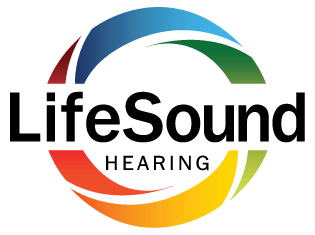If you haven’t had your hearing tested since you were in grade school, you’re not the only one, it’s usually not part of a routine adult physical, and, unfortunately, we tend to treat hearing reactively rather than proactively. Fortunately, a professional hearing specialist can uncover a wealth of information from a hearing test which can be used to both identify any hearing loss and help determine whether utilizing treatments like hearing aids is effective.
A full audiometry test is more involved than what you probably remember from childhood, and you won’t get a lollipop or a sticker when it’s completed, but you’ll gain a much clearer understanding of your hearing. There are three prevalent kinds of hearing tests, each of which will provide different perspectives about your hearing.
Pure tone testing
We typically think of sound as measured in decibels, but decibels only indicate the loudness of a sound. Tone, what we colloquially think of as pitch, is another key component. It’s calculated in Hertz (no relation to the car rental company), with a low bass sound measuring about 50-60 Hz, and normal speech ranging from 500 to 3,000 Hz. Healthy human hearing ranges from 20 to 20,000 Hz.
For pure tone testing, you’ll wear headphones or earphones attached to an audiometer. Another device that your hearing specialist might use is known as a bone oscillator which simply measures how well sound is conducted by your bones. Pure tones are delivered to one ear at a time, and you signal (by pressing a button or raising a hand) when you hear a sound.
The minimum volume that you can hear the tones will then be monitored. In other words, this test assesses how well your ears function: What range of sound you have a hard time hearing (which can be an essential indicator of whether you’d benefit from hearing aids), and whether you are suffering from hearing loss in both ears equally or if one ear is worse than the other.
Speech audiometry
This type of test evaluates your ability to accurately hear speech, again with sounds coming at you through headphones. Your hearing specialist will sometimes ask you to repeat recorded words that you hear while there is background noise. Your hearing specialist will, in other circumstances, have you repeat words they are saying, but their mouths will be hidden from view.
Hearing individual words means you can’t rely on context to comprehend what’s being said, and being unable to see the speaker keeps you from reading lips (something you may not even realize you’ve been doing). Rhyming words, let’s say crime, time, dime, and climb, can be challenging for individuals suffering from high-frequency hearing loss to distinguish.
Speech audiometry monitors your ability to make sense of what you’re hearing as opposed to tone testing which calculates how loud specific sounds need to be in order to be heard. Word recognition testing can also assist in assessing whether hearing aids could help.
Immittance audiometry
Okay, these can be a bit uncomfortable, but shouldn’t cause pain. Tympanometry artificially changes the pressure inside of your ear by pushing air in with a little inserted probe. Your hearing specialist will get a graph readout that displays how well your eardrum is working, which can identify whether there’s a possible problem such as impacted earwax or a perforation.
A related test uses a similar probe as an auditory tap on the knee, yes, your ears have reflexes! Muscles in your ear automatically contract when you are exposed to loud noise. Knowing the noise level needed for this reflex can help a hearing specialist measure the extent of hearing loss. There’s no reflex response in people who have extreme hearing loss.
Though immittance tests are most helpful in diagnosing conductive hearing loss, problems with the eardrum and/or little bones inside the ear, because these can occur at the same time as age- or noise-related hearing loss, it’s important to include to recognize everything that’s going on with your ears.
If you’re having difficulty hearing, contact us and schedule a hearing test! We can help you better comprehend your hearing health, educate you on what you can do to preserve healthy hearing, and let you know what your treatment options are if you have hearing loss or tinnitus.
[blogcta]

